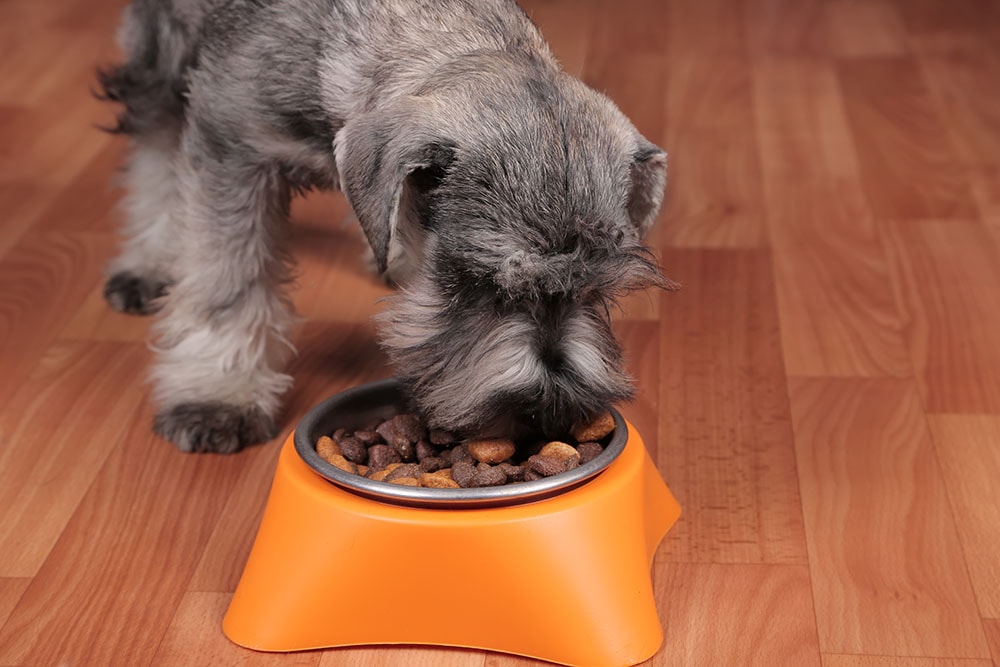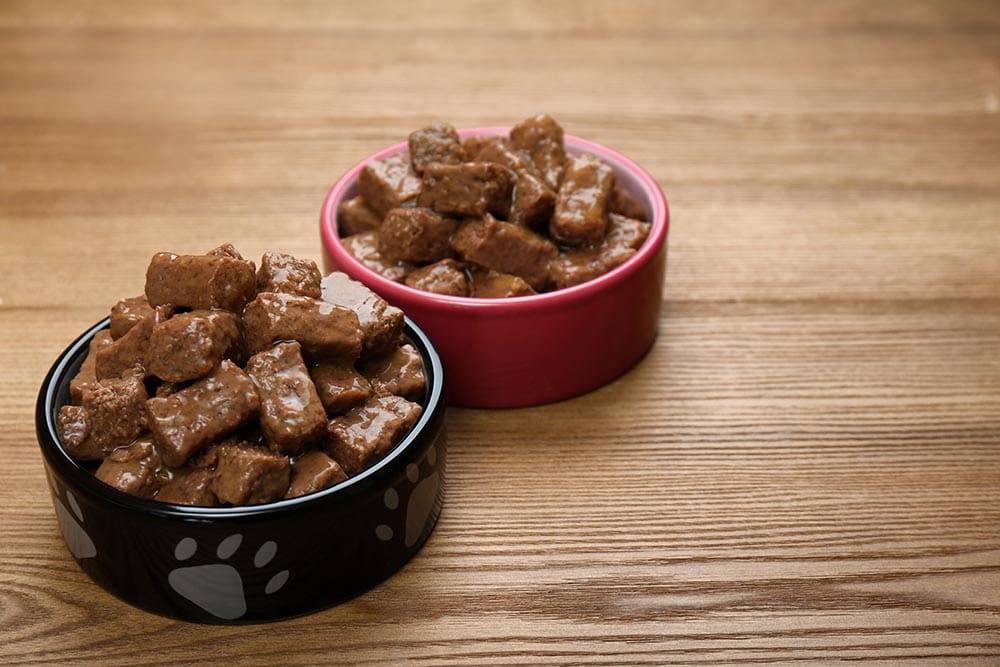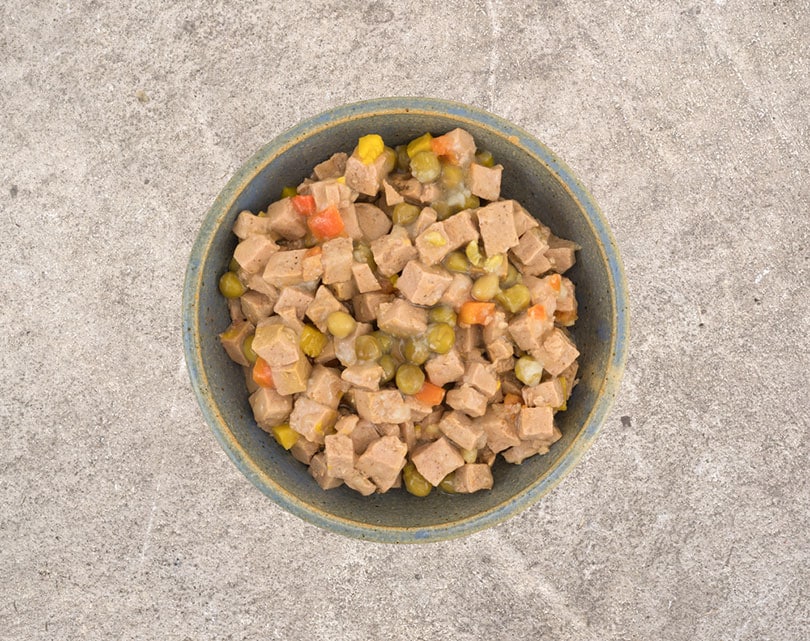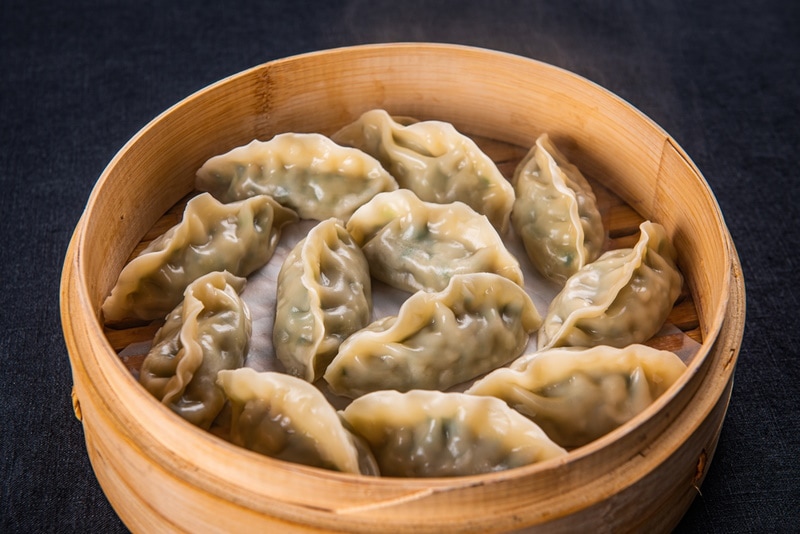What is DHA in Dog Food? Is It Healthy?

Updated on

If you have ever looked at the ingredients in your dog’s food (we certainly hope you have), then you have probably noticed a lot of items listed that you have never heard of. Though our knee-jerk reaction might be that of alarm, not every obscure-sounding ingredient is a bad thing.
We all want what is best for our furry friends. If DHA has caught your eye, and you’re unsure whether it is a healthy ingredient to feed your dog, keep reading to learn more about it.
In short, DHA stands for docosahexaenoic acid, which is an essential nutrient found in foods like salmon.
What Is DHA?
DHA is an acronym for a very long, confusing word: docosahexaenoic acid. But what exactly is DHA? It is a long chain polyunsaturated omega-3 fatty acid. It is an essential nutrient for dogs as they cannot make it themselves. They must get it in their food. DHA is found in highest levels in certain foods such as salmon.

Is DHA Healthy?
In young pups, DHA is a key component in building healthy brain and eye function. Since the brain is largely made up of fat, it is instrumental in aiding the development of the canine’s brain. In fact, the DHA content makes up 90% of the polyunsaturated fats (PUFAs) in the brain and up to 30% of all fats in the brain.
So, what impact does DHA have? It is understood that DHA is responsible for the proper development of your dog’s attention span, memory, and training capability.
Furthermore, DHA also has a significant impact on the joints, the immune system, and the skin and coat. Overall, it is an essential fatty acid!
What Are the Main Sources of DHA?
Now that we have established that DHA is a key component of a healthy dog’s diet, how can you ensure that your dog is getting it?
The best way to ensure that your dog is getting the DHA they need is to provide dog food that contains it, usually from fish oils in its regular diet. Fish oils contain high levels of DHA and other essential fatty acids. Coldwater fish (such as salmon or trout) can be an excellent source of fish oils. Fish oil supplements can also be purchased for your dog, but be sure to speak with your vet before making any decisions regarding feeding your dog supplements.

How Much DHA Should My Dog Get?
At the moment, it is recommended that your dog receives about 25 milligrams of DHA per kilogram of weight each day.
If your dog weighs 50 pounds, convert that into kilograms (22.7 kg). Then multiply that by 25 to determine how many milligrams of DHA your dog should be getting (in this instance, 567.5 mg).
Again, always consult your vet about any nutritional supplements before feeding them to your dog. Although DHA is healthy and essential for your pup, it is not healthy for dogs to get too much. Omega 3 fatty acids should be balanced in the correct ratio with omega 6 fatty acids.
In Conclusion
Next time you look at the ingredients list on your dog’s food formula, check for the inclusion of fish oils or the mention of DHA. You will want to ensure that your dog is getting plenty so it can live its happiest, healthiest life!
Featured Image Credit: Maximilian100, Shutterstock












